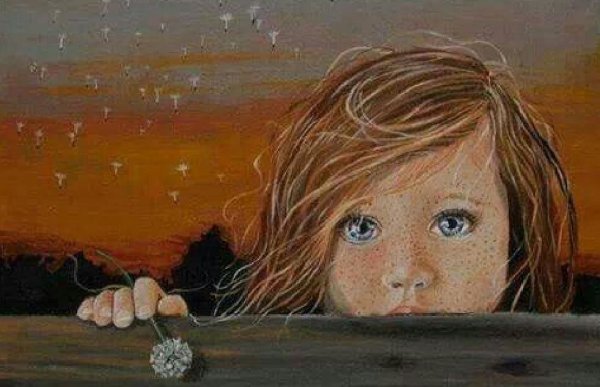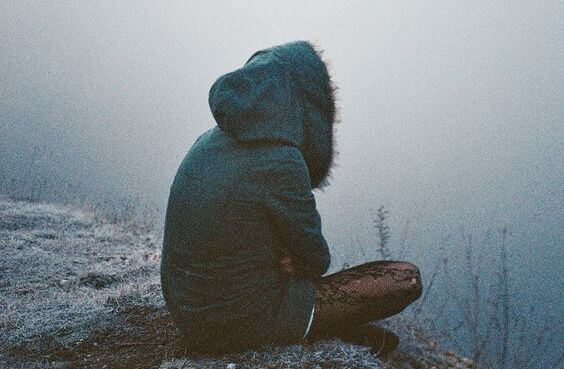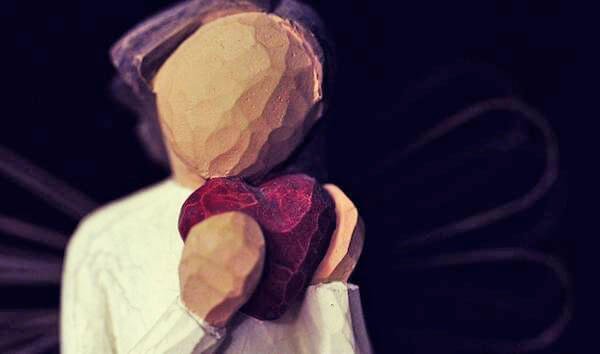Rejection Is the Deepest Emotional Wound

There are wounds that you cannot see but that can be so deeply rooted in our soul that they live with us the rest of our lives. These are emotional wounds, scars from the problems we have faced since childhood, and that on occasion, determine our quality of life as adults.
One of the deepest emotional wounds is rejection because those who suffer from it feel it inside, interpreting everything that happens around them through the filter of their scar, feeling rejected even when they are not.
Let us see in more detail what this wound is all about.
Origins of rejection
To reject means to resist, to despise or to refuse, what can be translated into “not liking” something or someone. This wound of rejection can be caused by parents rejecting their children, or sometimes by children feeling rejected by parents even when there is no reason for feeling this way.

From the earliest experience of rejection, a mask will begin to develop as a protection against this heart-breaking feeling which is linked to under-valuing oneself and is characterized by an evasive personality, according to the study conducted by Lise Bourbeau. That way, the first reaction when a person feels rejected is to run away and it is not unusual for children to invent an imaginary world.
In the case of overprotection, beyond the superficial trait masked as love, the child will feel rejected since he is not accepted as he is.
Characteristics of people who are wounded by rejection
A part of our personality is formed from the emotional wounds suffered as children. Because of that, the person who suffers from the wound of rejection tends to undervalue themselves and tries to attain perfection at all costs.
According to Lise Bourbeau, the parent of the same sex is most likely to cause this wound. It’s from this parent that the child most wants love and acceptance, and the child will be very sensitive to any comment coming from that parent.
The words “nothing”, “nonexistent”, and “disappear” form a part of the daily vocabulary, confirming the belief and feeling of rejection that is so deeply entrenched. In this way, it is normal to prefer solitude because the more attention received the more opportunity to be despised. If there is a need to share experiences with more people, they will try to tiptoe around, under the shell they have made, barely talking, and if they do talk it is only to reassure themselves.

Furthermore, they live in constant ambivalence, and when chosen, cannot believe it, even sabotaging the situation. If not chosen, he feels rejected by everyone else. In time, if an individual does not heal their wounds of rejection, they can turn spiteful and even hateful, a product of the extreme suffering they have gone through.
The deeper the wound of rejection is, the more probable it is to be rejected or to reject others.
Healing the the wound of rejection
The origin of any emotional wound comes from the inability to forgive what we have done or what has been done to us.
The deeper the wound of rejection is, the more we will reject ourselves or others, which can be hidden behind embarrassment. Also, there will be a tendency to run away, but this is just a mask to protect oneself from the suffering caused by these wounds.
The best way to heal wounds of rejection is by developing self-esteem, to value oneself and be confident without the need for the approval of others. To do that:
- An essential step is to accept the wound as part of oneself, which will free the trapped feelings. If we deny the presence of our suffering we won’t be able to work on healing it.
- Once accepted, the next step is to forgive, this will help to free us from the past. Put ourselves first with the way we treat ourselves and everyone else second, and realize it is very likely that the person who has hurt us also suffers from a deep hurt or a wounding experience.
- Start to treat oneself with love and give yourself priority. Giving ourselves attention, love and the self-worth we deserve is imperative to keep growing.

While we cannot erase the suffering we have experienced in the past, we can always alleviate our wounds and help them heal so the pain can go away or at least it can be relieved. Because, just as Nelson Mandela said, in some way we are captains of our soul.
This text is provided for informational purposes only and does not replace consultation with a professional. If in doubt, consult your specialist.








